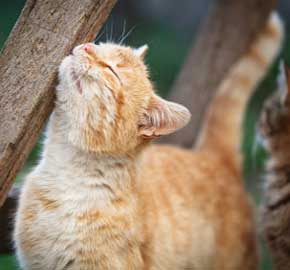Care for Senior Pets in Morris County NJ

Senior pets deserve our respect for the years of loyalty and attention they have given us. At Community Animal Hospital, we support this belief and have created a program just for our elderly pets called the Senior Pet Care Plan.
Wellness Care for Senior Pets
Senior pets are scheduled to visit us at least twice a year to address concerns associated with the pet aging process and to identify developing age-related diseases.
At each wellness visit, your elderly animal companion may receive the following:
- Senior health exam—Thorough and careful exam by a veterinarian, looking for indicators of developing problems and changes.
- Laboratory testing—Blood work, urinalysis, and fecal exam to detect any problems, developing illnesses, and to assess parasite control.
- Vaccinations—Vaccines that are tailored to the current needs of your pet.
- Weight and nutrition assessment—Determine body weight and compare gain or loss over the past 6 months, discuss changes in eating habits, and create a plan for the next period.
- Activity levels and mobility assessment—We will discuss your pet’s activity levels and the need for any changes, as well as adaptations to reduced mobility.
In healthy pets, changes can occur as they age. Behavioral changes in your senior pet are possible indicators of physical issues, and you are the observer at the front line for these changes. We ask pet owners to track any observed changes for discussion at this time. For example, a refusal to eat may be related to dental disease or digestive disorder; resistance to play may be due to an illness; and aggressive behavior may be related to pain.
Pet Pain Management
The humane treatment of elderly pets—our philosophy that every animal should be comfortable and comforted—suggests that pain requires immediate attention.
We discuss every option, and the pros and cons of each, with the pet owner prior to initiating a pain management protocol. Community Animal Hospital supports your efforts at maintaining your pet in relative comfort for as long as humanely possible.
Here are some signs that your senior pet is developing a problem:
- Sudden weight gain or loss
- Changes in appetite or food consumption
- Increase in water consumption or urination
- Vomiting or diarrhea
- Household accidents
- Foul odor
- Lameness
- Swelling or lumps on the body
If you see these or any other troubling symptoms in your senior pet, don’t wait—contact your Community Animal Hospital veterinarian right away.
Enjoy this article, Senior Pet Care, from the experts at the AAHA Healthy Pet website.



